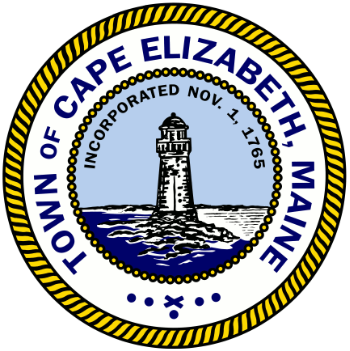11/07/2017
Council turns to mediation before deciding status of Shore Acres paper streets
An October 2016 decision to extend the town's rights in Surf Side Avenue and Atlantic Place, two paper streets in Shore Acres, will stand while the town looks to broker an agreement among neighbors for how best to resolve the status of the streets.
The Town Council voted unanimously on Nov. 6, 2017 to direct Town Manager Matthew Sturgis to arrange for professional mediation, such as that offered by the Greater Portland Council of Governments, to bring together a forum of neighborhood residents and town officials to reach a compromise on the disputed streets.
Sturgis is slated to report back to the council next month, with the forum's findings due in March 2018.
The town's rights in a third controversial paper street, Lighthouse Point Road near Two Lights, will also remain, after a motion to vacate those rights failed by a 5-2 vote Nov. 6.
The council had voted a year ago to extend rights in 32 of the town's 58 paper streets - streets that appear on subdivision plans but never accepted as public ways - for 20 years, part of the state's mandate for all municipalities to decide what they will do with their paper streets. At that time councilors also directed the Conservation Committee to develop a study on the feasibility of greenbelt trails on the three most controversial paper streets - Surf Side Avenue and Atlantic Place in Shore Acres; and Lighthouse Point Road in the Two Lights Terrace subdivision. Councilors were poised to accept that report in July, but instead voted 4-3 to begin vacation proceedings. The following month they rescinded that vote and have been discussing in workshops and executive sessions how best to resolve the conflicts.
Twenty-six people spoke at the meeting Nov. 6, most favoring acceptance or at least extending the right to accept the Shore Acres streets for public access.
Some, however, also suggested mediation. Sheila Mayberry, a resident of Trundy Road in Shore Acres, said mediation was not "kicking the can down the road," but rather a positive action to resolve disagreements in a civil way. "The stakeholders have never been able to engage in this type of productive problem solving," she said, identifying stakeholders as abutters opposed to a greenbelt trail on the streets, town officials, and the more than 700 citizens who signed a petition calling for acceptance of the paper streets.
Another speaker, former Town Council chair Jim Walsh, suggested a process similar to what led to ordinances regulating firing ranges and short-term rentals - both issues that began as neighborhood controversies. "I believe we have civility now in a lot of these neighborhoods," Walsh said. "I suggest to you as you move forward, apply the leadership to this contentious issue that you applied in those last two examples, to move this to a place that is good for all of the citizens of Cape Elizabeth," he said.
Councilor Penny Jordan made the initial motion for mediation on the Shore Acres paper streets. "Everything I've heard is that everything has been done in large forums, and you can't always do problem solving in large forums," Jordan said. "So my motion is to maintain the (paper street) extension and to form a group that will then work to solve the problem," she said.
After a two-hour debate, including a counter motion for a non-binding citizen referendum which failed 5-2, councilors voted to direct Sturgis to explore mediation-service options, specifying the Dec. 11, 2017 report date to the council, and the March 2018 target for reporting final findings.
Jamie Garvin, Town Council chair who suggested the greenbelt study last year, said he favored extending rights in the paper streets as long as it included an agressive plan for resolution.

